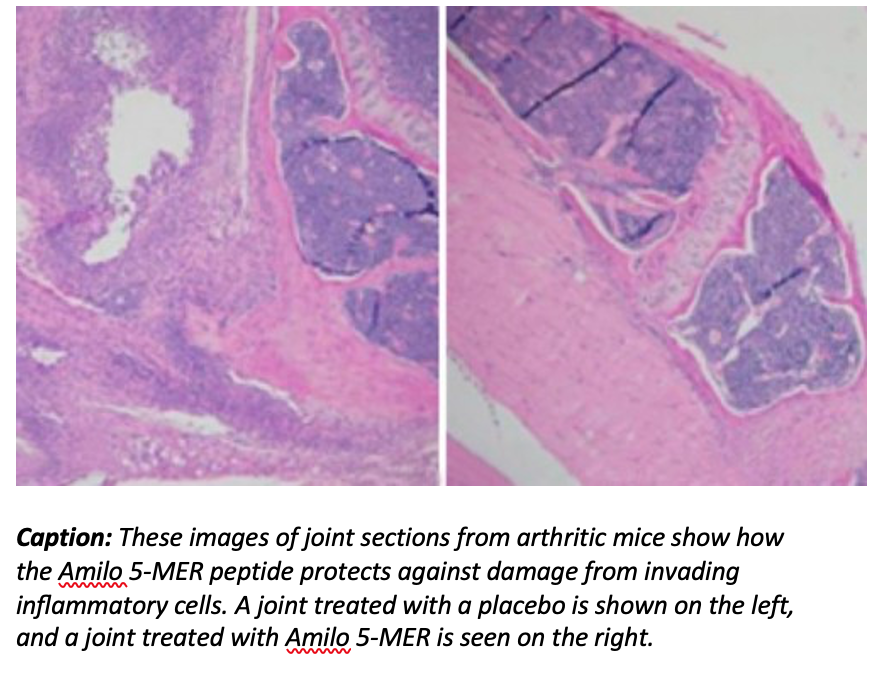Peptide Shows Potential for Fighting Alzheimer’s Disease and COVID-19
 A new paper from NYU Tandon professors Mary Cowman and Jin Ryoun Kim indicates that a novel peptide has broad therapeutic potential to combat chronic inflammation in multiple diseases.
A new paper from NYU Tandon professors Mary Cowman and Jin Ryoun Kim indicates that a novel peptide has broad therapeutic potential to combat chronic inflammation in multiple diseases.
The peptide, called Amilo 5-MER, was discovered by Professor David Naor and his colleague Dr. Shmuel Jaffe Cohen in the Faculty of Medicine at the Hebrew University of Jerusalem in Israel. They showed that Amilo 5-MER has anti-inflammatory effects that reduce pathological and clinical symptoms in mouse models for rheumatoid arthritis, inflammatory bowel disease, and multiple sclerosis.
Based on Naor's finding that the peptide binds to several proteins associated with inflammation, including Serum Amyloid A (SAA), Cowman and Kim proposed a working mechanism for the peptide. In a collaboration between the Israeli and Tandon teams, they were able to show that the peptide inhibits aggregation of SAA into more pro-inflammatory and pro-amyloidogenic forms. Amyloid-type aggregation of proteins is associated with many diseases, and the Amilo 5-MER peptide has been found to bind to other aggregating proteins that play key roles in chronic inflammations and neurodegenerative diseases. Thus, the peptide could have significant therapeutic value in many other pathological conditions, such as Alzheimer's Disease, AA amyloidosis, and even COVID-19.
The project was supported by the Ines Mandl Research Foundation (IMRR), which is dedicated to providing research funding in the fight against connective tissue disease. It is the legacy of Dr. Ines Mandl, who was the first woman to graduate from the Polytechnic Institute of Brooklyn (today’s NYU Tandon School of Engineering) with a Ph.D. in chemistry in 1949.
Related Articles
Citation
Peptide Shows Potential for Fighting Alzheimer’s Disease and COVID-19. Appl Radiol.
September 2, 2021